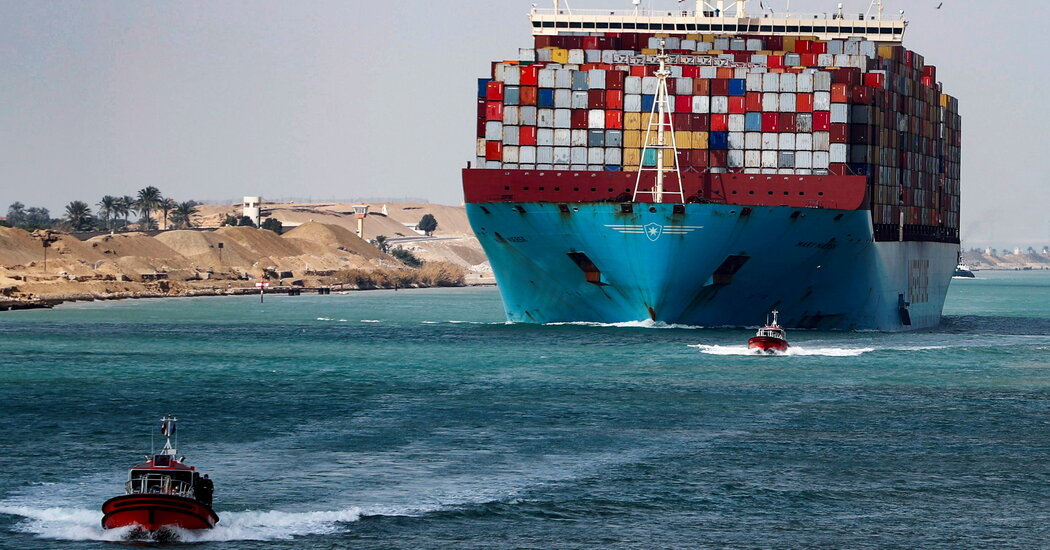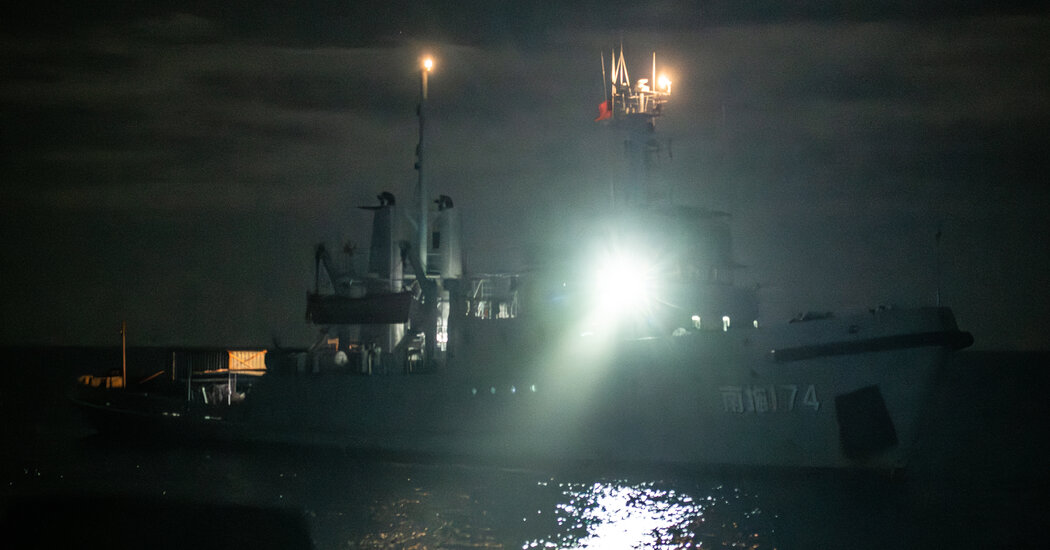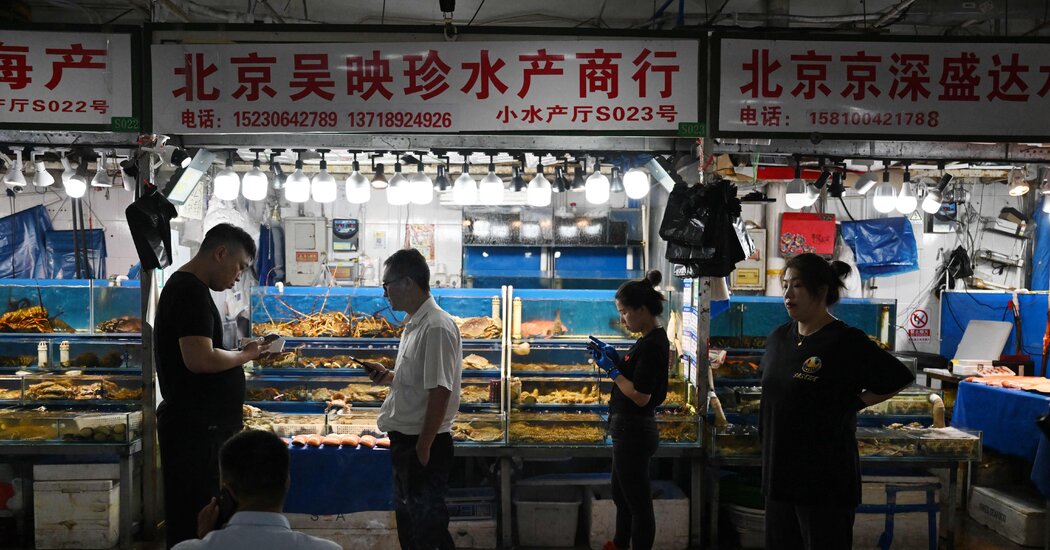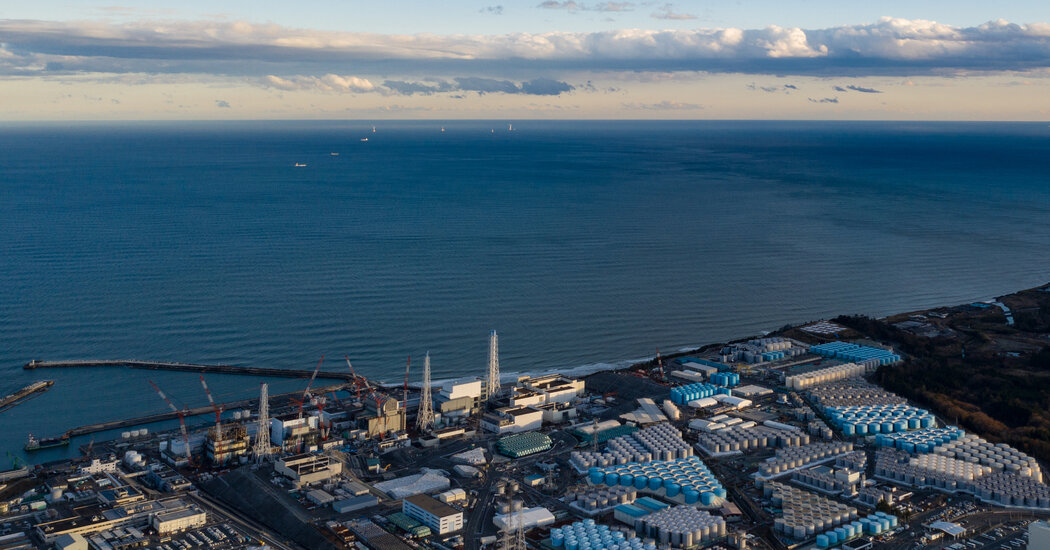The shipping companies that move goods on one of the world’s busiest trade routes for factories, stores, car dealerships and other businesses face an excruciating decision. They can send their vessels through the Red Sea if they are willing to risk attacks by the Houthi militia in Yemen and to bear the cost of sharply higher insurance premiums. Or they can sail an extra 4,000 miles around Africa, adding 10 days in each direction and burning considerably more fuel. Neither option is appealing and both raise costs — expenses that…
Tag: Oceans and Seas
Blasting Bullhorns and Water Cannons, Chinese Ships Wall Off the Sea
The Chinese military base on Mischief Reef, off the Philippine island of Palawan, loomed in front of our boat, obvious even in the predawn dark. Radar domes, used for military surveillance, floated like nimbus clouds. Lights pointed to a runway made for fighter jets, backed by warehouses perfect for cruise missile launchers. More than 900 miles from the Chinese mainland, in an area of the South China Sea that an international tribunal has unequivocally determined does not belong to China, cellphones pinged with a message: “Welcome to China.” The world’s…
Seafood Is Safe After Fukushima Discharge, But Some Won’t Eat It
Seafood is having a bad week in East Asia, which is bad news for a region where it’s a major part of the diet. Experts say Japan’s discharge into the ocean of treated radioactive wastewater from the ruined Fukushima nuclear power plant, which began on Thursday, does not and will not pose health risks to people who eat seafood. But even though the scientific evidence bears that out, not everyone is convinced. On Thursday, the Chinese government widened a ban on seafood imports to include all of Japan instead of…
Atomic Agency Clears Japan to Release Fukushima Water
In one of the remaining steps before Japan decides to release more than one million metric tons of treated radioactive water from the Fukushima nuclear plant into the Pacific Ocean, the International Atomic Energy Agency declared on Tuesday that the government’s plan had met the agency’s safety standards. The nuclear authority’s final report concluded that the treated water would “have a negligible radiological impact to people and the environment” once it is released. Japan’s plan has provoked controversy both at home and abroad, as government officials in China and many…
A U.S. ‘Ships Act’ Would Break China’s Control of the Seas
Soon after President Xi Jinping of China took power, he instructed top Communist Party leaders in a 2013 speech to turn the country into a “maritime superpower.” China already has the world’s largest navy, though its ability to contend with U.S. naval forces remains in doubt. But leaders in Beijing have realized that maritime strength is not measured solely in firepower. Success in commercial shipping would have “great and far-reaching significance” for Chinese national strength and security, Mr. Xi told the Politburo then, reminding the party that throughout history the…
‘Penis Worms’ May Have Been the First Hermits
Consider this evolutionary dilemma, faced by the aquatic and squishy: How do you survive in hostile, predator-filled oceans? Squid rely on speed or camouflage. Snails develop complex shells. Hermit crabs borrow those complex shells when other animals aren’t using them, trading them out for bigger models as they grow. This sheltering strategy was believed to have emerged 180 million years ago in the Jurassic Period, when hermit crabs’ ancestors appeared in oceans, said Martin Smith, a paleontologist at the University of Durham in England. But in a study published Monday…





